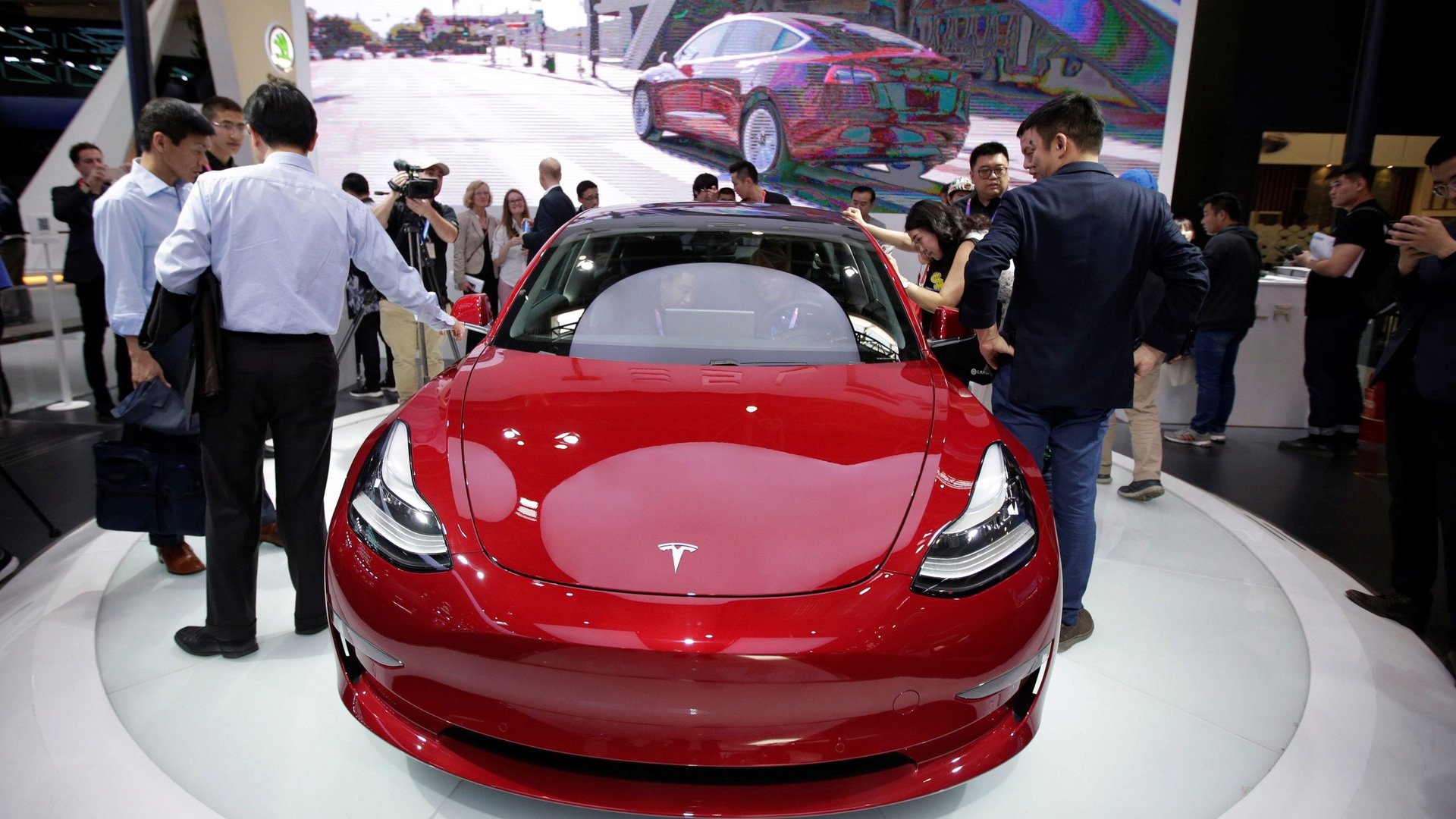A Tesla in China will cost $20,000 more because of the trade war
It’s been quite a ride for Tesla buyers in China for the past few months.


It’s been quite a ride for Tesla buyers in China for the past few months.
In May, a price cut on Tesla cars looked likely after Beijing announced it would bring its 25% tariff on imported cars down to 15% (paywall) from July 1. Instead, the electric car maker is raising prices now that the US-China trade war has kicked off in earnest.
Listed prices for Tesla cars on the company’s Chinese website increased 20% over the weekend (paywall). The increase came after Beijing slapped a 25% additional tariff on imported American cars, in response to the US tariffs on $34 billion in Chinese goods imposed Friday (July 6). That brings the total import tariff for US cars to 40% (link in Chinese).
A basic Tesla Model S with a roughly 300-mile range now costs about 849,000 yuan ($129,000), including value-added tax and tariffs, according to Tesla’s Chinese site (link in Chinese). That’s an increase from 710,000 yuan ($107,300) (link in Chinese) earlier. A Model X SUV now costs $140,100 (paywall), about $23,000 more than earlier.
Tesla didn’t immediately respond to requests for comment about the cause of the price hikes. But a local salesperson in Shanghai attributed the rise to the trade war and added that the new prices will remain through the year, reports the Hong Kong-based South China Morning Post.
It’s a setback for Tesla in China, which contributed to 17% (pdf, p.118) of the company’s revenue in 2017. Unlike most foreign car makers in China, Tesla sells its cars independently as imports rather than via a joint-venture partnership, where foreign auto firms team up with a local manufacturer, which has an equal or controlling stake, to make cars for the local market.
“Raising prices is going to hurt sales, but money-losing Tesla has to raise prices because they can’t afford to fully absorb to the higher costs of [the] tariff,” analyst Efraim Levy of research firm CFAR told Reuters.
Tesla has taken steps in recent months to manufacture in China, including setting up a company for research and development in Shanghai in May. A manufacturing hub could allow for exemption from import taxes. Tesla’s chief executive Elon Musk recently said Tesla could open a China plant within another three years.
That will take a lot of bureaucratic goodwill—which may be in short supply right now toward US firms. But it seems like Tesla’s working on it. According to Bloomberg, Musk is attending an event in Shanghai today with the government, and will attend another one tomorrow in Beijing—though no further details about the meetings have been made public.